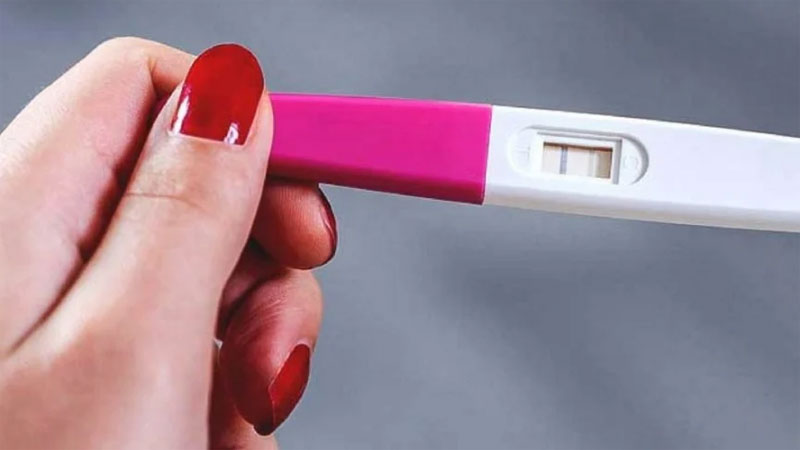 A test to see if a woman is pregnant or not.
A test to see if a woman is pregnant or not.
Medical tests designed to tell if a woman is pregnant or not, generally by measuring the level of human chorionic gonadotropin (hCG), produced by the placenta during pregnancy) in the blood or urine. Urine tests are most common, and some can detect a pregnancy within a few days after a missed menstrual period. They can readily be redone, so if the first result is negative but a period still does not arrive, the tests can be performed again. The level of hCG produced by a woman or detected by a test may vary. A period can also be missed for other reasons, so if a test remains negative, a woman should explore other causes with her doctor.
One of several blood or urine tests to determine the presence of human chorionic gonadotropin (HCG), suggesting pregnancy. Serum (blood) tests are most reliable and have the lowest false-positive and false-negative rates, though some urine tests are very specific (low false-positive rate). The results of over- the-counter pregnancy tests should always be confirmed by a medical laboratory.
Tests on a woman’s blood or urine that doctors use to detect a pregnancy. Over-the-counter home pregnancy tests that evaluate a urine sample are available at drug stores; if used correctly, they are nearly as accurate as those performed by a doctor. All of these tests involve the detection of a hormone called human chorionic gonadotropin (HCG) in the woman’s urine or blood. HCG is produced in large quantities by the developing placenta during the first few weeks of pregnancy.
Any of several methods used to demonstrate whether or not a woman is pregnant. A commonly used laboratory test of early pregnancy is based on detection of a hormone, chorionic gonadotropin, in the urine. Mixture of a few drops of urine with a test solution containing an antibody that reacts with the hormone gives an almost immediate result. The test becomes positive within a month of conception and false-positive results are very rare. Alternative tests that require a woman to take hormonal drugs should be avoided if the pregnancy is intended, since there is a risk of damage to the developing embryo.
There are several tests for pregnancy in its early stages, and these can be done on blood or urine; some of the urine tests may be carried out at home. Most tests are based on the detection of human chorionic gonadotrophin (HCG) in the woman’s urine. They are nearly 100 per cent accurate and may show positive as early as 30 days after the first day of the last normal period.
